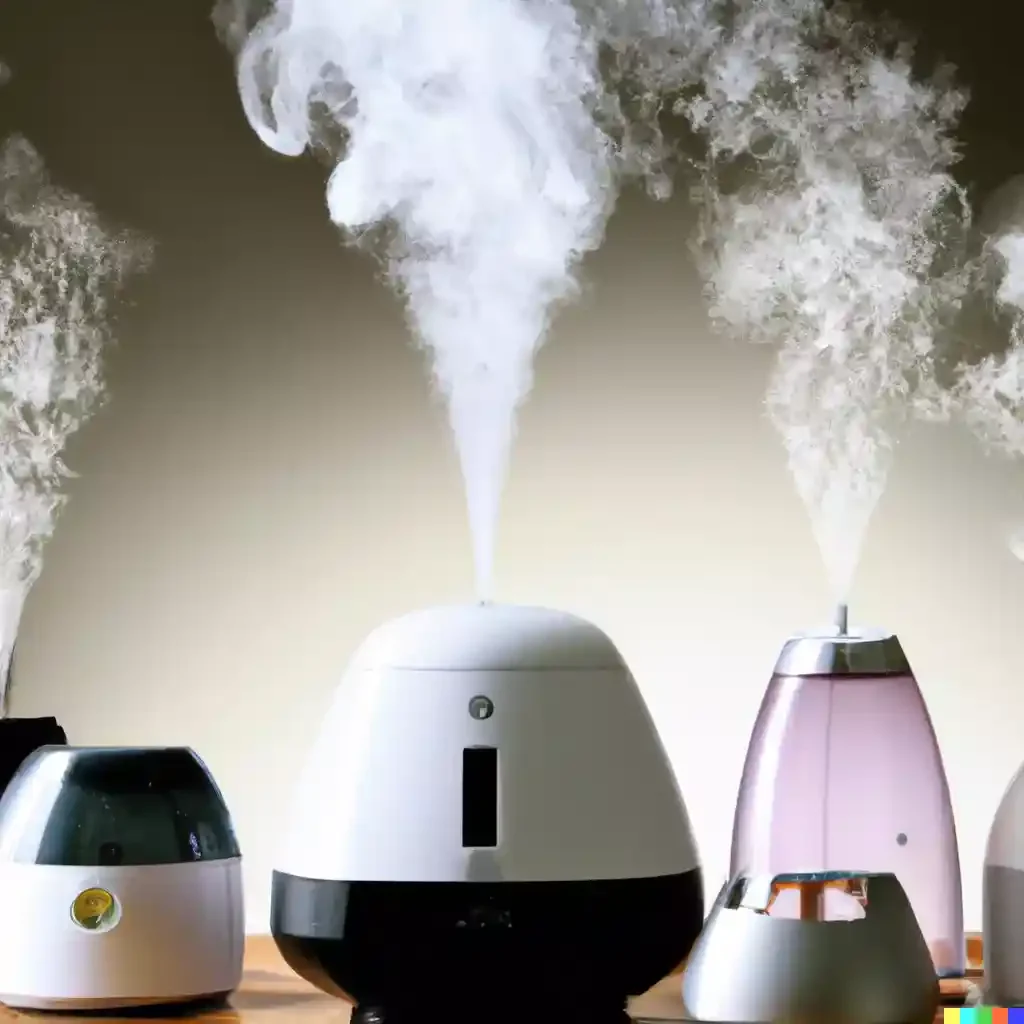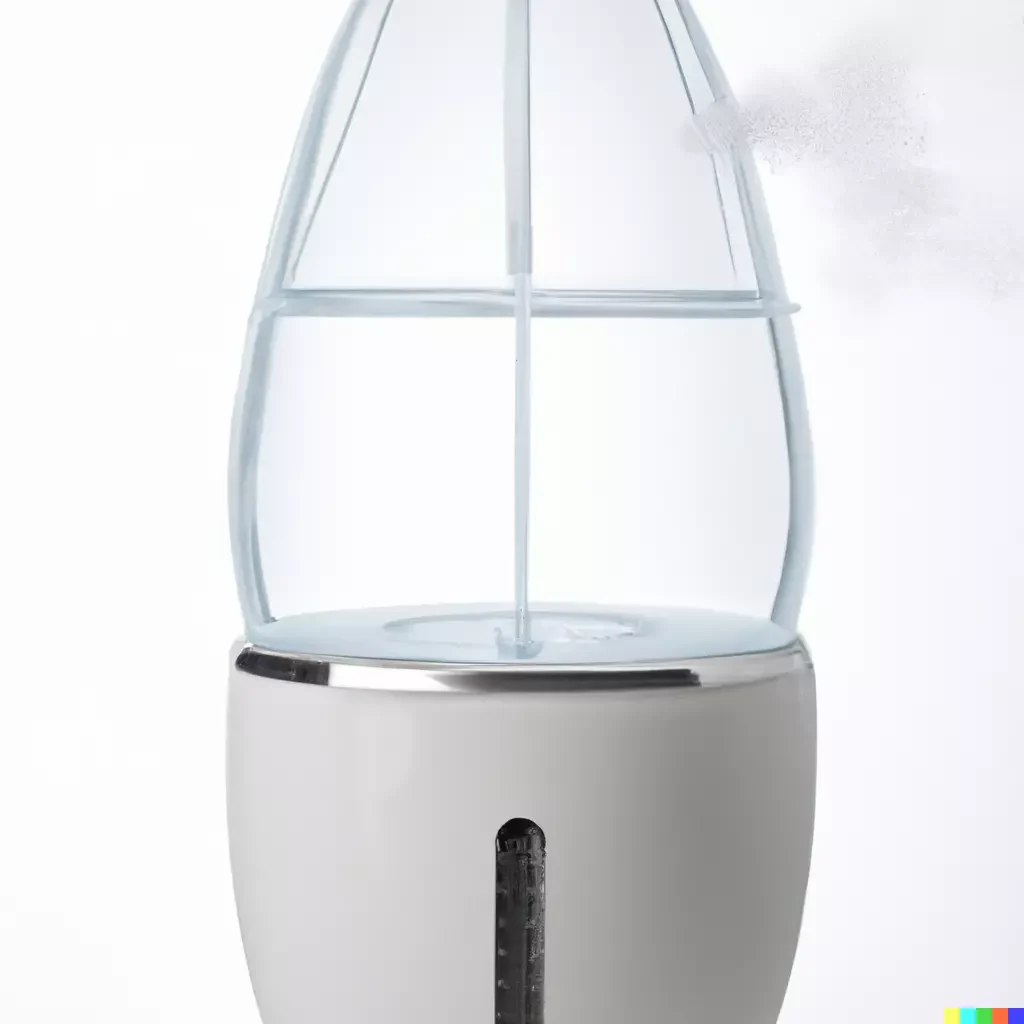Using tap water in a humidifier is generally fine, but it depends on your local water’s mineral content. Hard water can lead to mineral dust buildup, potentially causing respiratory issues.
Distilled or demineralized water is often recommended to avoid this problem and ensure humidifier longevity. Regular cleaning is essential, regardless of water type, to prevent mold and bacteria growth. Let’s dive more.
Importance of Humidifiers
Humidifiers play a crucial role in maintaining optimal indoor humidity levels, especially during dry seasons. They offer a myriad of benefits, from preventing dry skin and irritated eyes to minimizing respiratory issues. However, the question of whether tap water is suitable for use in humidifiers has sparked debates due to concerns about potential negative effects.
Concerns Regarding Water Source
Choosing the right water source is essential to ensure the longevity and effectiveness of your humidifier. Tap water, while readily available, may contain various impurities that could impact the device’s performance. In this article, we delve into the composition of tap water and its implications for different types of humidifiers.
Understanding Tap Water Composition
- Minerals
Tap water often contains minerals such as calcium and magnesium. While these minerals are generally safe for consumption, they can leave deposits in the humidifier, leading to reduced efficiency and the need for more frequent cleaning.
- Impurities
Impurities like chlorine and other contaminants present in tap water might be harmless when ingested but can become problematic when released into the air as part of the humidification process.
Effects on Humidifier Performance
The accumulation of minerals and impurities can result in the formation of white dust, affecting the device’s functionality. Additionally, these deposits may contribute to the growth of mold and bacteria within the humidifier, posing potential health risks.
Types of Humidifiers
- Cool Mist Humidifiers
Cool mist humidifiers, which include evaporative and ultrasonic models, are particularly susceptible to mineral buildup from tap water. The fine mist produced can carry these minerals into the air, settling on surfaces in the room.
- Warm Mist Humidifiers
Warm mist humidifiers, also known as steam vaporizers, heat water to produce a warm vapor. While this process may reduce the likelihood of mineral release, tap water impurities can still affect the humidifier’s performance over time.
- Ultrasonic Humidifiers
Ultrasonic humidifiers use vibrations to produce a fine mist. The ultrasonic technology is generally less prone to mineral buildup, but tap water impurities can still pose challenges.
Manufacturer Guidelines
Manufacturers typically provide guidelines on the type of water suitable for their humidifiers. It is crucial to consult the product manual to determine the recommended water source and any specific instructions for maintenance.
Recommended Water Sources
- Distilled Water
Distilled water is the purest form of water, free from minerals and impurities. Using distilled water in your humidifier can mitigate the risk of mineral deposits and promote better performance.
- Filtered Water
Filtered water, either through a water filter or pitcher filter, can be a suitable alternative. While not as pure as distilled water, it can help reduce the presence of minerals and impurities, enhancing the overall performance of your humidifier.
Tap Water Considerations
Using tap water in a humidifier is a common practice, but it comes with certain considerations. Before opting for tap water, consider the hardness of your local water supply. Hard water, characterized by a high mineral content, may lead to quicker mineral buildup in the humidifier. Regular cleaning and maintenance become even more crucial in such cases to prevent issues.
Pros and Cons of Using Tap Water in Your Humidifier
Benefits
Cost-Effectiveness:
- Using tap water in your humidifier is a cost-effective option, as it is readily available and doesn’t incur additional expenses compared to other water sources.
Accessibility:
- Tap water is easily accessible in most households, providing a convenient and immediate solution for humidifier use.
Drawbacks
Mineral Deposits:
- The presence of minerals in tap water, such as calcium and magnesium, can lead to the accumulation of mineral deposits in the humidifier. This can result in reduced efficiency and the need for frequent cleaning.
Bacterial Growth:
- Tap water may contain impurities and microorganisms that, when released into the air during humidification, can contribute to bacterial growth in the humidifier, posing potential health risks.
Tap Water Pre-treatment
- Boiling Tap Water
Boiling tap water before using it in your humidifier can help eliminate some impurities and reduce the risk of bacterial growth. This simple pre-treatment method enhances the overall quality of the water.
- Using Water Softeners
Water softeners are devices designed to reduce water hardness by removing minerals. Using a water softener in conjunction with tap water can minimize mineral deposits in the humidifier.
- Adding Distilled Water Enhancers
Distilled water enhancers, available in the market, aim to improve tap water quality by reducing mineral content and impurities. They provide a middle ground between tap water and distilled water for humidifier use.
Maintenance Tips
- Cleaning Frequency
Regular cleaning is crucial when using tap water in a humidifier. Establish a consistent cleaning schedule to prevent mineral deposits and bacterial growth. Follow the manufacturer’s guidelines for proper cleaning and maintenance.
- Dealing with Mineral Buildup
If mineral deposits accumulate in your humidifier, use a mixture of vinegar and water or a specific humidifier cleaner recommended by the manufacturer. Regular maintenance helps dissolve and remove deposits, extending the device’s life.
- Monitoring Humidifier Filters
Keep a close eye on humidifier filters, as they can trap minerals and impurities. Follow the manufacturer’s recommendations for filter replacement or cleaning to ensure optimal performance.
Health Implications
Allergies:
- Mineral deposits and bacterial growth in a humidifier using tap water may exacerbate allergies, leading to respiratory discomfort and irritation.
Asthma:
- Individuals with asthma may be more sensitive to impurities released into the air by a humidifier using tap water. Regular maintenance is essential to reduce the risk of triggering asthma symptoms.
Skin Conditions
Hard water minerals released by a humidifier can contribute to skin dryness and irritation. Individuals with sensitive skin may experience worsened skin conditions when using tap water in their humidifiers.
Alternatives to Tap Water for Your Humidifier
- Distilled Water
Distilled water is one of the most commonly recommended alternatives to tap water for humidifiers. It is purified through a distillation process that removes minerals and impurities, reducing the risk of mineral deposits and bacterial growth in the humidifier.
- Purified Water
Purified water, which undergoes various filtration methods, is another suitable alternative. Filtration processes such as reverse osmosis or carbon filtration remove contaminants, providing cleaner water for your humidifier.
- Humidifier-Specific Water Packs
Some manufacturers offer humidifier-specific water packs or cartridges designed to enhance the quality of water used in humidifiers. These packs typically contain minerals and additives that help prevent mineral buildup and maintain optimal humidifier performance.
Environmental Impact
- Water Conservation
Using alternatives like distilled or purified water can contribute to water conservation. These sources often involve more efficient water purification processes compared to the treatment of tap water, reducing overall water consumption.
- Disposal Considerations
Disposal of water from humidifiers, particularly when using alternatives, should be done conscientiously. Consider the environmental impact and adhere to local guidelines for the proper disposal of water, especially if it has been treated with additives or filtration systems.
- Regulatory Standards
FDA Guidelines
The Food and Drug Administration provides guidelines for the use of water in medical devices, including humidifiers. Following FDA recommendations ensures that the water used meets certain standards, minimizing health risks associated with humidifier use.
Industry Recommendations
Various industries, including the humidifier manufacturing sector, may provide specific recommendations for the type of water to use in their products. Checking and adhering to these guidelines can help maintain the warranty of your humidifier and ensure optimal performance.
Using alternatives to tap water in your humidifier not only benefits the device but also has positive environmental implications. Distilled and purified water reduce the risk of mineral deposits, bacterial growth, and potential health concerns. Additionally, adhering to regulatory standards and industry recommendations ensures the safe and efficient operation of your humidifier. Consider the environmental impact of your water choices and dispose of water responsibly to contribute to overall sustainability.
Troubleshooting Tap Water Concerns in Your Humidifier
- Strange Smells
If you notice strange smells coming from your humidifier, it may indicate bacterial growth. Regular cleaning and using distilled water can help eliminate these odors.
- Unusual Noises
Unusual noises, such as gurgling or rattling, could be a sign of mineral buildup. Thoroughly clean your humidifier and consider using water alternatives to prevent further issues.
- Changes in Humidity Levels
Inconsistent changes in humidity levels may result from mineral deposits affecting the humidifier’s efficiency. Address this by cleaning the device and using distilled or purified water.
DIY Solutions
- Homemade Water Treatments
Create homemade water treatments by adding a small amount of vinegar or baking soda to tap water before using it in your humidifier. This can help reduce mineral deposits and bacterial growth.
- DIY Cleaning Solutions
Prepare DIY cleaning solutions using a mixture of water and vinegar or a mild detergent. Regularly clean your humidifier, including the water tank and other components, to maintain optimal performance.
Summary of Best Practices
- Choosing the Right Water
Opt for alternatives such as distilled or purified water to minimize tap water concerns. These alternatives reduce the risk of mineral deposits and bacterial growth, ensuring a healthier environment.
- Regular Maintenance
Emphasize regular maintenance by following manufacturer guidelines for cleaning and disinfecting. Consistent cleaning prevents issues like strange smells, unusual noises, and changes in humidity levels.
Conclusion
- Recap of Key Points
In troubleshooting tap water concerns with your humidifier, addressing strange smells, unusual noises, and changes in humidity levels is crucial. DIY solutions, including homemade water treatments and cleaning solutions, can be effective in maintaining optimal performance.
- Final Thoughts on Tap Water Usage
While tap water is a convenient option, being aware of potential issues and implementing preventive measures is essential. Consider alternatives like distilled or purified water and commit to regular maintenance to ensure a trouble-free humidifier experience.
Frequently Asked Questions (FAQs)
A. Can I use tap water in all types of humidifiers?
Tap water can be used in most humidifiers, but it may lead to mineral deposits and bacterial growth. Check your humidifier’s manual for water recommendations.
B. What are the signs of mineral buildup?
Signs of mineral buildup include strange smells, unusual noises, reduced efficiency, and changes in the mist output of your humidifier.
C. How often should I clean my humidifier?
Regular cleaning is essential. Follow the manufacturer’s recommendations, but a general guideline is to clean your humidifier at least once a week, or more frequently if you notice issues.








